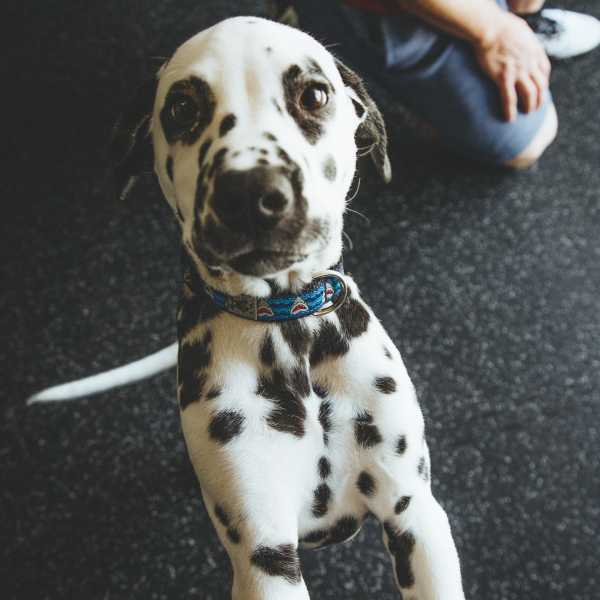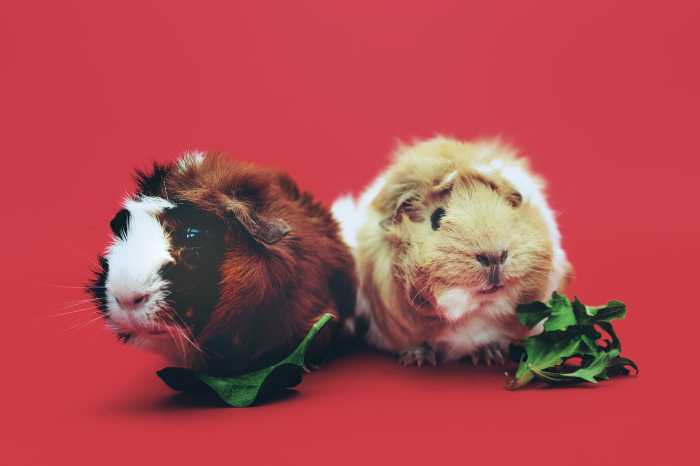
Pets Radar - Do guinea pigs sleep? Five tips from a vet for keeping your guinea pig healthy
Posted on 26 February, 2021

Photo by Scott Webb on Unsplash
Written by Catherine Barnette DVM for Pets Radar
So do guinea pigs sleep? In order to properly care for your new guinea pig, it’s important to have an understanding of their medical needs and behaviours.
If you have spent any time observing guinea pigs and their nonstop activity, you may find yourself asking a number of questions, not the least of which is “when do guinea pigs sleep?!” The answer to that question is “not very often,” but understanding guinea pig sleep schedules and other aspects of normal guinea pig behaviour can help make it easier and less stressful to care for your pet cavy.
1. Guinea pigs sleep every day, but not for very long
Any time you walk by your guinea pig’s cage, your guinea pig probably seems to be awake, eating, chewing, or playing. This is a big contrast to other small animal pets, like hamsters and rats, which can often be seen dozing during the course of the day.
Just like any other animal, guinea pigs do require sleep. There are a number of reasons you probably don’t see your guinea pig sleeping, though. First, guinea pigs are primarily diurnal. This means that, like humans, guinea pigs tend to be awake during the day and tend to sleep at night, although they are most active around dawn and dusk. This is in contrast to hamsters, for example, which are nocturnal, preferring to sleep during the day and be more active at night.
Most guinea pig owners report that their guinea pigs sleep approximately four to six hours per day. This means that, while guinea pigs do sleep at night, they don’t sleep all night long. Therefore, it might feel like your guinea pig is awake much of the night, especially if your guinea pig’s cage is located in your bedroom! If your guinea pig is keeping you awake at night, consider moving his or her cage to a separate area of your home. Guinea pigs are social but sensitive to loud noises, so consider a room that gets a lot of human activity but that isn’t exceptionally close to a TV, stereo, or other loud noisemaker.
2. Guinea pigs benefit from a large, clean cage
Your guinea pig spends most of his or her time in a cage. Therefore, it’s important to make sure that the cage is the best hutch possible for your guinea pig. In general, the bigger the better! The Humane Society of the United States recommends at least 7.5 square feet of floor space for a single guinea pig, with 30” x 36” being a good size for a typical guinea pig cage. This size will allow your guinea pig to engage in some activity and exercise within the cage, which will keep your guinea pig healthy while also preventing boredom. You might want to consider buying one of the best rabbit runs, too, so your guinea pig can exercise in safety.
While you may see cedar or pine shavings advertised as appropriate bedding for a guinea pig cage, these substances are not recommended; they often contain chemicals that may be harmful for guinea pigs. Instead, look for paper bedding. Your guinea pig cage should contain at least two to three inches of bedding, to ensure that urine and other messes are absorbed and puddles do not develop. Your guinea pig should walk and sleep directly in this bedding, not on a wire grate, because standing on a wire grate can lead to foot infections.
3. Guinea pigs have a biological need to chew constantly
Guinea pigs not only enjoy chewing, it’s literally something that they need to do! As rodents, guinea pigs have teeth that keep growing throughout their lives. Consistent chewing helps keep their teeth worn down to an appropriate length, preventing potentially-serious dental issues.
The best option for guinea pigs to chew on is hay. Your guinea pig should always have access to fresh hay, which provides not only a source of fiber and nutrition, but also something to chew on. You can also purchase chew toys for your guinea pig, made of wood or cardboard. It’s best to avoid plastic toys for guinea pigs, because they can be harmful if chewed upon.
4. Guinea pigs require a specific diet in order to remain healthy
There is no single, all-in-one guinea pig diet. Instead, properly feeding a guinea pig requires a combination of foods, to ensure that your guinea pig is receiving all of the nutrients that he or she needs. There’s a full explanation of this in our article Can guinea pigs eat grapes? Six guinea pig nutrition questions answered.
Approximately 10% of your guinea pig’s daily diet should be composed of a pelleted guinea pig diet. This amounts to about ⅛ cup of pelleted diet. Another 10-15% of your guinea pig’s dietary intake, or approximately 1 cup, should consist of fresh vegetables. The remainder of your guinea pig’s daily caloric intake should come from fresh hay.
Guinea pigs require Vitamin C as a component of their diet and can develop scurvy if vitamin C is not provided. Vitamin C is not typically shelf-stable in pelleted food, so it’s not enough to assume that the guinea pig food provides adequate Vitamin C. Instead, focus on feeding vegetables that are high in Vitamin C, which may include spinach, broccoli, kale, and green/red peppers. Vitamin C drops can also be added to your guinea pig’s water on a daily basis.
Fruit can be given to your guinea pig as a special treat, once or twice a week. However, it’s best not to give fruit on a daily basis, because the high sugar levels in fruit can lead to unhealthy weight gain in your guinea pig.
5. Guinea pigs require veterinary care, just like other pets
Like other pets, guinea pigs can develop a variety of health issues. Common health problems in guinea pigs include scurvy (Vitamin C deficiency), dental disease, mites/lice, ringworm, and diarrhea. If you see any signs of illness in your guinea pig, contact your veterinarian to schedule a physical examination. This will allow your veterinarian to diagnose the cause of your guinea pig’s illness and provide appropriate treatment.
Not all veterinarians are comfortable treating guinea pigs, so it’s best to find a veterinarian as soon as possible after you obtain your guinea pig. Follow your veterinarian’s recommendations for preventive care and the management of any illness your guinea pig may develop.
Proper care improves health and quality of life
While a guinea pig may seem like a low-maintenance pet, it’s important to take your responsibilities as a pet owner seriously and ensure that you are meeting your guinea pig’s medical and social needs. By doing so, you can ensure that your guinea pig has a long, healthy, happy life.
To read the original post, please visit - https://www.petsradar.com/advice/do-guinea-pigs-sleep-five-tips-from-a-vet-for-keeping-your-guinea-pig-healthy
Tags:



